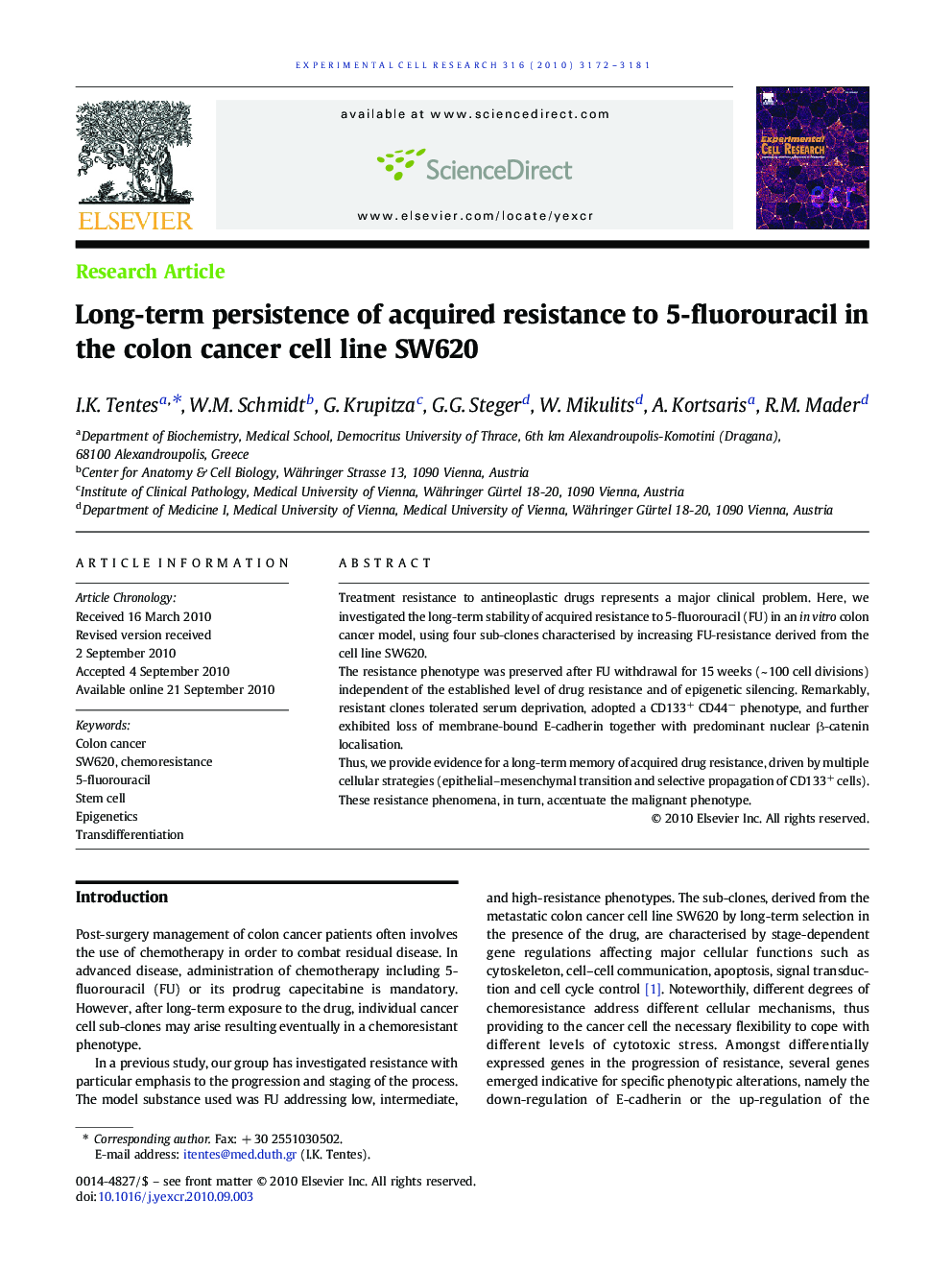| Article ID | Journal | Published Year | Pages | File Type |
|---|---|---|---|---|
| 2131007 | Experimental Cell Research | 2010 | 10 Pages |
Treatment resistance to antineoplastic drugs represents a major clinical problem. Here, we investigated the long-term stability of acquired resistance to 5-fluorouracil (FU) in an in vitro colon cancer model, using four sub-clones characterised by increasing FU-resistance derived from the cell line SW620.The resistance phenotype was preserved after FU withdrawal for 15 weeks (~ 100 cell divisions) independent of the established level of drug resistance and of epigenetic silencing. Remarkably, resistant clones tolerated serum deprivation, adopted a CD133+ CD44− phenotype, and further exhibited loss of membrane-bound E-cadherin together with predominant nuclear β-catenin localisation.Thus, we provide evidence for a long-term memory of acquired drug resistance, driven by multiple cellular strategies (epithelial–mesenchymal transition and selective propagation of CD133+ cells). These resistance phenomena, in turn, accentuate the malignant phenotype.
